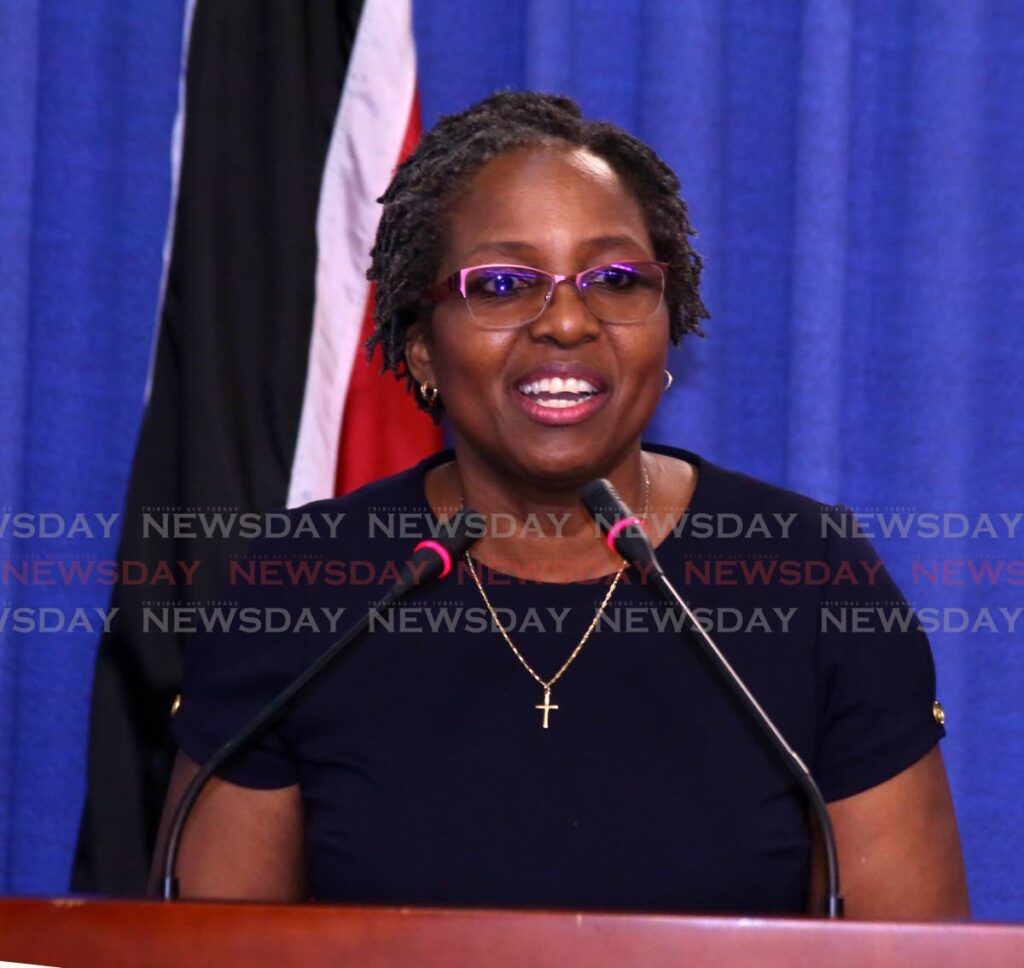Mental health director: Suicide trends unaffected by covid19

THE covid19 pandemic has not affected the trends of suicide in Trinidad and Tobago or the factors which lead to them.
Health Ministry mental health director Dr Hazel Othello made this comment during a virtual meeting with members of Parliament's Social Services and Public Administration Committee on Friday.
She also said the term "committed suicide" is no longer publicly used because it gives the impression that suicide is something criminal. Terms such as "dying by suicide" or "lives lost due to suicide" are considered more sensitive to people who have lost friends or relatives to suicide.
Committee chairman Independent Senator Paul Richards observed increases in suicides in TT from 2019-2021. These figures were 92 suicides in 2019 (79 men, 13 women), 104 in 2020 (83 men, 21 women) and 128 in 2021 (110 men and 18 women). Richards cited data from previous studies which said TT recorded the third highest number of mental health issues in the Caribbean and was the 7th highest in terms of suicides.
Referring to Shaline Ramkissoon, 38, and her common-law husband Steve "Ricky" Jugmohan, who were found dead in their La Paille Road, Princes Town home on March 19, Richards asked if the pandemic had contributed to any increase in suicides.
Othello said, "During the pandemic, we have not seen any changes in these trends. Those trends remain consistent."
She added that the number of completed suicides has increased over the last few years.
Richards asked what factors caused people to contemplate or die from suicide. In what appeared to be a reference to Ramkissoon and Jugmohan's deaths, he suggested economic challenges seem to be a contributing factor.
Othello said, "We are never absolutely sure of the cause, because of course, the persons whose story is being told are no longer with us."
That information is often obtained from sources such as relatives or friends of the deceased.
She said the police also provided the Health Ministry with information on suicide statistics.
There were. she said, "A large number of suspected reasons or contributing factors towards those suicides. They include financial challenges. They include social problems, interpersonal conflict, substance use-related conditions."
Some suicides may be connected to people having previous mental health issues, such as depression.
Othello told committee members the causes were multi-factoral.
In a signed letter written to their children, Ramkissoon and Jughmohan hinted at experiencing financial challenges.
"We are so sorry for what we have done but we are in too deep with little or no time. We really tried but we never got through. (Daughter’s name), please help take care of (son’s name)," the letter said.
Othello said, "What continues to be the trend is that males are more likely to complete the act of suicide."
Referring to the statistics Richards mentioned, Othello said they reflected the number of people who actually died by suicide.
But, she continued, an examination of the entire spectrum of what is called suicide behaviour provides different information. Othello said that information comes in the form of incomplete suicides, cases where people attempt suicide but do not die as a result.
In these instances, she said, "You see a higher prevalance of females."
She added that regional health authorities offer services for people with mental health challenges and who may be contemplating suicide. The Health Ministry has help lines as well.
Opposition Senator David Nakhid claimed public advertisements for alcohol or alcoholic beverages in certain communities could be encouraging alcoholism in those communities. He claimed to have seen such advertisements in places along the East-West Corridor but not in western Trinidad. Nakhid asked that such ads not be put in places where children and fathers see them daily.
While it offered a brief escape from reality, Nakhid was concerned about alcoholism being "an obvious cause of distress among vulnerable communities.
National Alcohol Drug Abuse Programme (NADAP) co-ordinator Lyra Thompson-Hollingsworth said the issue of where advertisements are publicly placed could either be a policy or legislative matter. She added that NADAP continues to work with all its stakeholders to educate the public properly about the dangers of substance abuse.
Richards asked her how many 14-year old children would be aware of NADAP's initiatives, including any that were being posted on social media. Thompson-Hollingsworth assured him that NADAP's ongoing engagement includes interacting with stakeholders who would in turn educate children who may not be aware of the programme's public education efforts on substance abuse.

Comments
"Mental health director: Suicide trends unaffected by covid19"